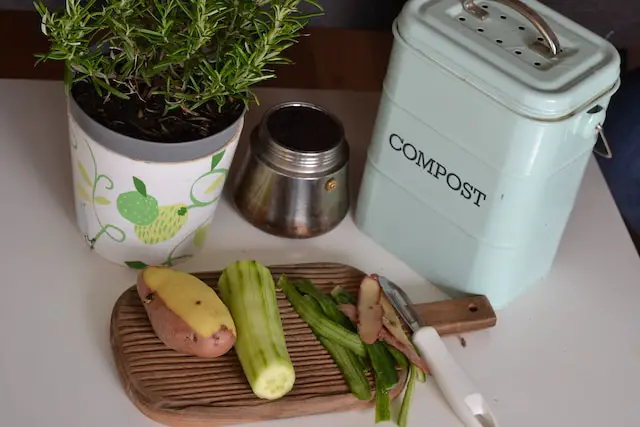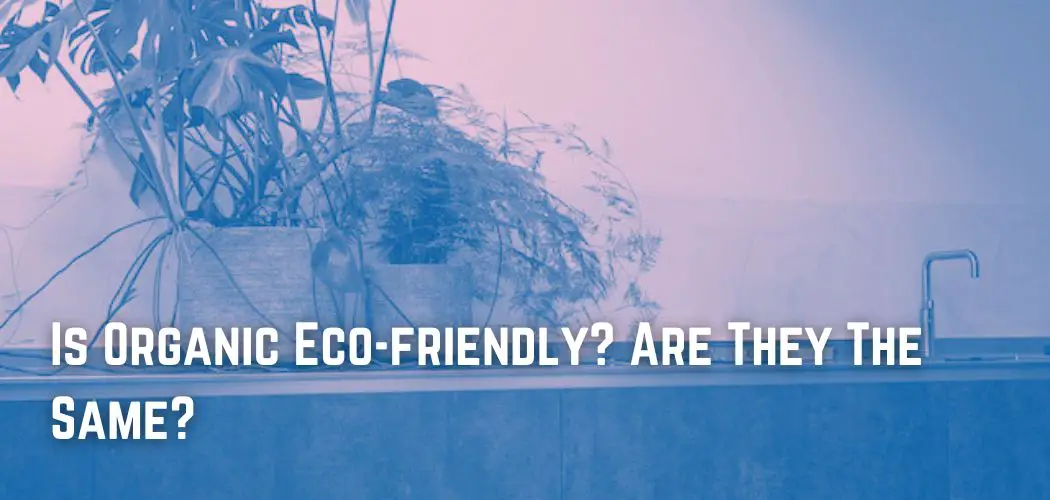When you think of the word “organic,” what comes to mind? For some, organic might bring to mind images of fresh fruits and vegetables free from harmful chemicals.
For others, it might be associated with environmentally friendly practices like recycling and using less energy.
In reality, the term “organic” can mean different things to different people. People often assume that if something is organic, it must also be eco-friendly. But this isn’t always the case.
So what does “organic” really mean? And is “eco-friendly” a synonym? In this blog post, we’ll break it all down for you.
Difference Between Organic and Eco-friendly
The main difference between organic and eco-friendly is that organic refers to items that are grown without the use of synthetic pesticides or fertilizers. In contrast, eco-friendly refers to things that have a minimal impact on the environment.
In other words, organic items are grown in a way that is more sustainable and environmentally friendly, while eco-friendly items may or may not be organic.
For example, an organic cotton shirt is made without using harmful chemicals during the growing process. Therefore, it’s eco-friendly.

On the other hand, a polyester shirt made from recycled plastic bottles is also eco-friendly because it uses less energy and resources than a shirt made from new fabric. However, it’s not considered organic since it is not made from natural materials.
It’s important to remember that organic and eco-friendly are not the same thing, but they are related.
When you’re looking for products that are good for both you and the environment, look for items that are both organic and eco-friendly.
How is Organic Food Environmentally-Friendly?
The word “organic” is used to describe things that come from nature. The organic food movement began in the early 20th century when people started to become concerned about the way food was being produced.
Organic farming is a method of agriculture that relies on natural processes and inputs like composting and green manuring. Organic farmers don’t use synthetic pesticides, herbicides, or fertilizers.
Organic farming is considered more sustainable than conventional farming because it doesn’t rely on fossil fuels or chemical inputs. It also helps keep our soil healthy and reduces water pollution.
Anything that’s organic must meet certain standards set by the USDA. In order to be labeled organic, a product must have been produced without the use of synthetic pesticides, genetically modified organisms, or ionizing radiation.
Is Organic Necessarily Eco-Friendly?
Just because something is organic doesn’t mean it’s automatically environmentally friendly. There are some organic products whose production processes can be harmful to the environment.
For example, organic cotton is often grown in developing countries with little regulation, which can lead to water pollution and soil depletion. This organic crop also uses a lot of water, which can put a strain on local water supplies.

Organic coffee is also often grown in ways that damage the environment. The coffee industry is notorious for its deforestation practices, which can lead to erosion and loss of habitat.
So while organic products are generally better for the environment than their conventional counterparts, they’re not always perfect. When you’re looking for eco-friendly products, it’s important to do your research to make sure you’re choosing the best option.
Is Organic Farming Bad for the Environment?
There is a lot of discussions around whether organic production is better for the environment than conventional farming.
The general consensus seems to be that, while organic farming does have environmental benefits, they are not necessarily more significant than those associated with conventionally grown crops.
One reason for this is that organic farming typically uses more land area than conventional agriculture in order to achieve equivalent yields. This can be problematic when you consider the impact that agriculture has on ecosystems and biodiversity.
Organic methods also rely heavily on pesticides and fertilizers made from natural ingredients, which can lead to increased emissions of greenhouse gases like methane.

In addition, there can be problems with the leaching and run-off of these substances into waterways if proper precautions aren’t taken.
Despite these potential drawbacks, there are many ways in which organic farming is more environmentally sustainable than conventional agriculture.
For example, organic systems typically promote the use of cover crops and crop rotation, which help to improve soil health and reduce erosion. They also often rely on less mechanization, leading to lower fuel consumption and emissions.
Organic livestock production generally involves higher animal welfare standards and reduced antibiotic use, both of which have environmental benefits.
Bottom Line
The bottom line is that organic products are not automatically eco-friendly. However, they are often a better choice than their conventional counterparts.





